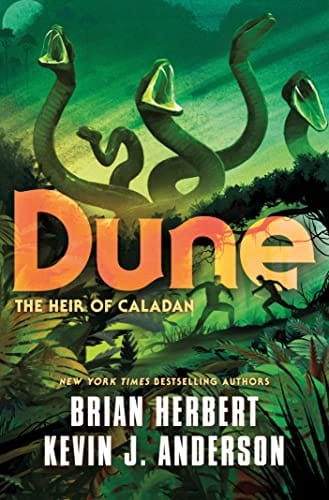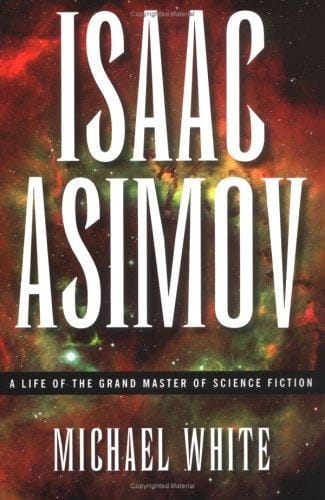Exploring Frank Herbert's Dune: Themes, Lore, and Legacy
A deep dive into Frank Herbert's Dune, covering themes, lore, adaptations, and why this sci-fi classic still matters.

Introduction to Dune
When Frank Herbert released "Dune" in 1965, the science-fiction landscape changed forever. The sweeping saga set on the desert planet of Arrakis blended political intrigue, ecological warning, and spiritual exploration in a way no novel had before. Today, "Dune" remains one of the best-selling science-fiction books of all time, inspiring filmmakers, game designers, and generations of readers who crave big ideas woven into epic storytelling. This article offers a comprehensive yet spoiler-light overview of what makes "Dune" so compelling and why its relevance has only grown stronger with time.
The World of Arrakis
At the heart of the novel lies Arrakis, an arid planet where water is scarcer than gemstones and colossal sandworms guard the desert. Arrakis is the sole source of the spice melange, a narcotic substance that extends life, unlocks prescient abilities, and fuels interstellar travel. Control of the spice translates into control of the galaxy, placing Arrakis at the center of titanic power struggles. Herbert’s meticulous world-building—complete with invented languages, feudal-style houses, and a deeply researched ecology—creates an immersive setting that rivals Middle-earth and Westeros for depth and believability.
Core Themes That Resonate Today
Beyond its adventurous plot, "Dune" resonates because Herbert uses Arrakis as a stage to examine broader human concerns. Themes of environmental stewardship, colonialism, messianic mythmaking, and the perilous allure of charismatic leaders pulse through every page. In an era grappling with climate change and resource scarcity, these issues feel prescient rather than dated. Herbert challenges readers to look critically at heroes, question easy answers, and recognize the complexity behind any struggle for survival or dominance.
Ecology and Sustainability
Herbert’s own fascination with desert biology and water conservation informed his portrayal of Arrakis. He spent years studying dune ecology on the Oregon coast, translating real scientific principles into fictional ecosystems. The Fremen, native inhabitants of Arrakis, wear stillsuits that reclaim bodily moisture and dream of terraforming their harsh planet. Their reverence for every drop of water teaches a lesson in sustainable living that modern society—confronting droughts, deforestation, and rising seas—would do well to heed.
Power, Politics, and Religion
"Dune" also dissects how institutions manipulate faith and myth to consolidate authority. The Bene Gesserit sisterhood seeds legends among primitive worlds, expecting to harvest obedience centuries later. Paul Atreides, thrust into prophecy, becomes both liberator and potential tyrant, illustrating the double-edged sword of messianic power. As modern politics increasingly revolves around personality cults and viral narratives, Herbert’s cautionary tale feels uncannily relevant.
Iconic Characters
While its themes are lofty, "Dune" succeeds because its characters are palpably human. Paul Atreides evolves from dutiful son to visionary emperor. Lady Jessica balances devotion to her son with loyalty to the Bene Gesserit’s shadowy breeding program. Villains like Baron Harkonnen ooze decadence yet remain terrifyingly competent, while the Fremen leader Stilgar embodies the rugged honor of desert survival. Their intersecting motivations ground the story, proving that even in a universe of prescience and worm-ridden dunes, personal choices still shape destiny.
Influence on Science Fiction and Pop Culture
Nearly every major space opera that followed—"Star Wars," "Babylon 5," "Mass Effect"—bears Herbert’s fingerprints. Spice echoes in "Star Wars" as spice smugglers; giant sandworms surface in "Tremors" and "Beetlejuice." Even real-world discussions of geopolitics adopt "Dune" terminology when referencing resource wars or desert conflicts. The novel’s success also paved the way for more intricate, adult-oriented science-fiction that interrogates politics and ideology rather than merely depicting gadgetry and battles.
From Page to Screen: Adaptations
Adapting a story as layered as "Dune" has long been considered a filmmaker’s ultimate challenge. Alejandro Jodorowsky’s ambitious 1970s attempt collapsed under its own weight but became a legend. David Lynch’s 1984 film offered striking visuals yet muddled storytelling. The 2021 adaptation by Denis Villeneuve finally balanced faithfulness with accessibility, introducing new audiences to Arrakis while earning critical acclaim and multiple Academy Awards. A second installment is slated to expand the saga, and a forthcoming HBO series will explore the Bene Gesserit order, signaling a renaissance for Herbert’s universe.
How to Start Your Journey into Dune
New readers often ask whether they should begin with the original novel or tackle Herbert’s entire six-book series. Most experts recommend reading the first book as a standalone; its ending offers closure yet invites curiosity. If hooked, continue chronologically: "Dune Messiah," "Children of Dune," "God Emperor of Dune," "Heretics of Dune," and "Chapterhouse: Dune." Companion works by Brian Herbert and Kevin J. Anderson expand the lore but are optional. To enhance immersion, consider listening to a full-cast audiobook, which brings Fremen chants and political debates vividly to life.
Conclusion
Nearly six decades after publication, "Dune" endures because it entertains while challenging readers to ponder power, ecology, and destiny. Herbert’s layered narrative ensures that each reread reveals new insights, whether you’re a first-time traveler to Arrakis or a seasoned spice addict. With fresh screen adaptations on the horizon, now is the perfect moment to dive into this desert epic and discover why "Dune" remains the gold standard of literary world-building and speculative thought.



